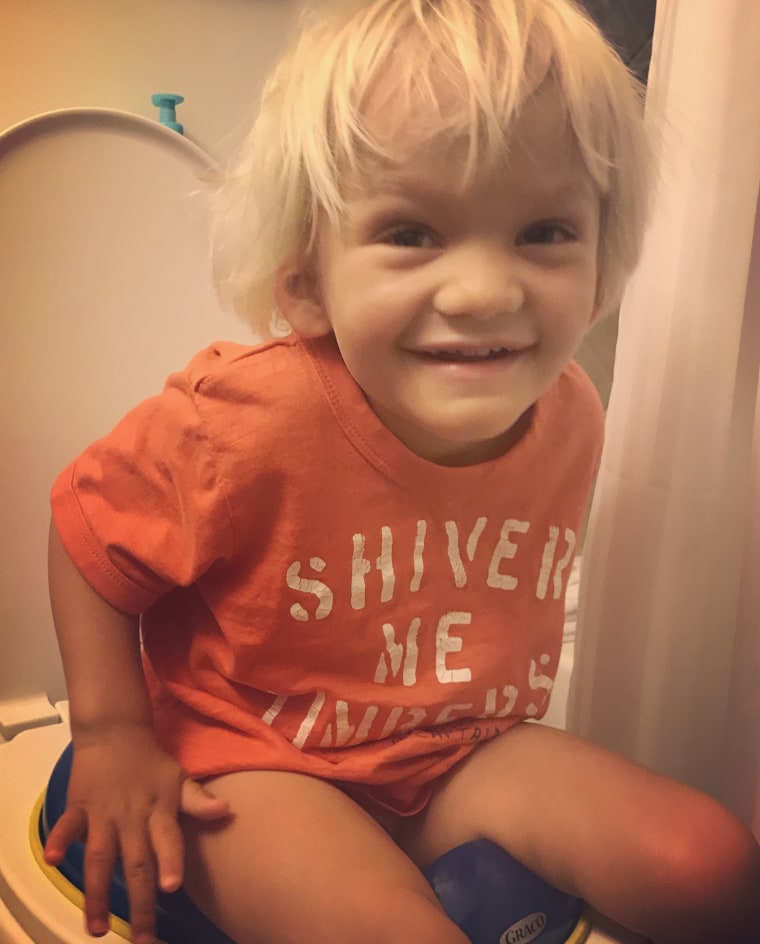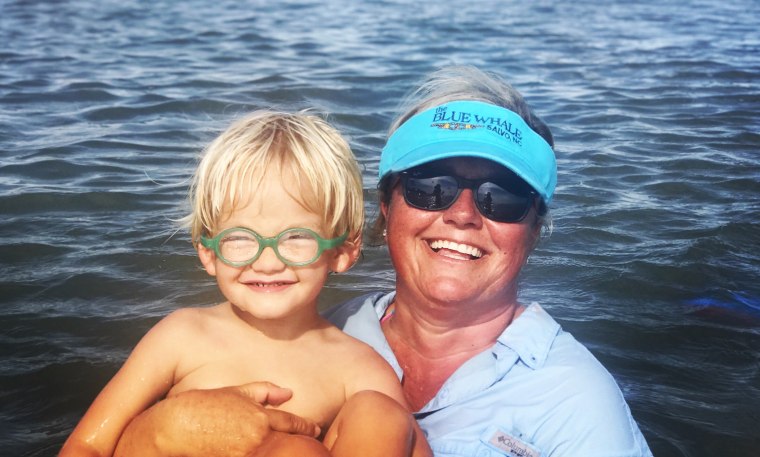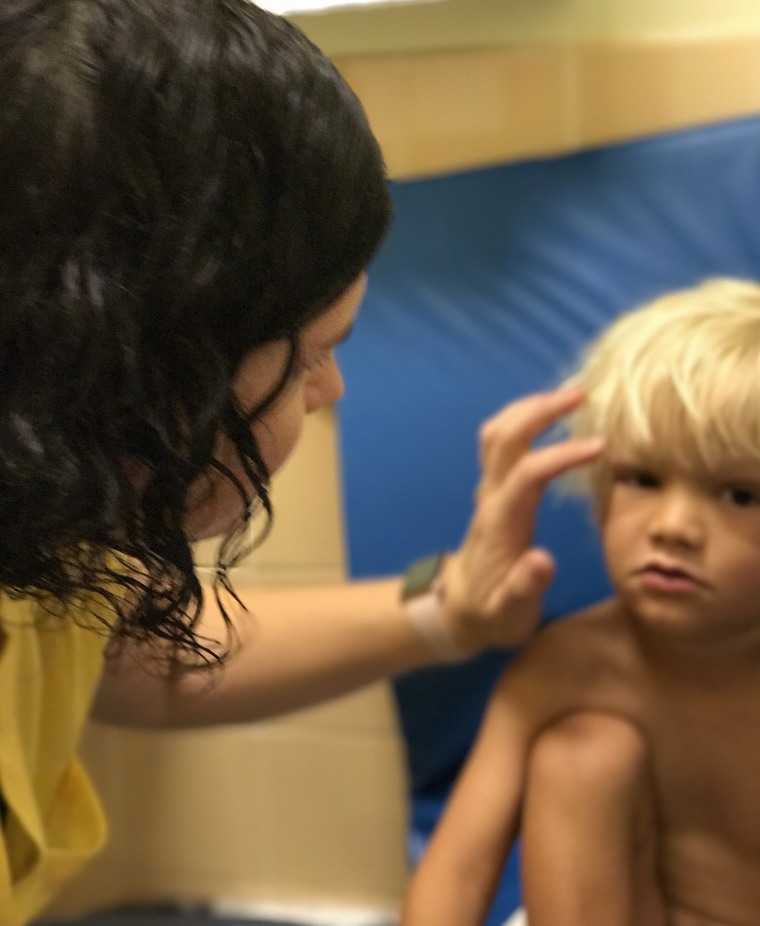As a mom of four kids, North Carolina mom Adrian Wood has faced her share of parenting challenges, but when it came to potty training her youngest son, Amos, 3, Wood had no idea where to start.
Unlike her older children, Amos has autism, something Wood says left her desperate to see her son hit the milestone of being potty trained, but clueless about where to begin.

"I knew enough from my older three that I knew I had no idea what to do," Wood told TODAY Parents. "They were easy enough and did it when they were three. They were communicative and it only took a few days. I had no idea where to begin with Amos. None."
After doing some research, Wood learned of the Emory Autism Center, a behavioral program run by the Emory University School of Medicine. The center provides an intensive, one-week toilet training program for children with autism, as well as additional toilet training support for families of autistic kids.
"Attempting to potty train Amos on my own was the hardest thing I have ever done and for me, I knew I needed hands-on help," said Wood. "I would have given up if I had to do it all alone...everyone has different strengths, and I know my own."
Never miss a parenting story on TODAY.com! Sign up for our newsletter here.
Wood, a writer who shared her experience potty training Amos on her Facebook page, traveled to Georgia to attend the center's one-week program, spending five hours per day with her son in the facility's bathroom with trained therapists, then continuing to work with Amos in the evenings in a hotel room.
"The ultimate goal is for Amos to tell us he has to pee-pee," Wood wrote in a Facebook post, "But in the meantime, we are also working on trip training, which is peeing on demand every thirty minutes with few accidents. We are on our way and just need time now."
Catherine Rice is the director of the Emory Autism Center, and says that because of the communication challenges they face and their tendency to cling to routines, kids with autism often have trouble with potty training.

"They start to think that Mom or Dad or their caregiver changes them when they're wet and that it's just a passive thing," explained Rice, adding that her facility's program focuses on creating new routines using Applied Behavior Analysis, a method of therapy designed to reinforce positive behaviors and skills.
"Embedded in the program is helping the family develop the skills to learn what really motivates the child so they make good associations with positive events like peeing on the potty," said Rice.
Sharon Hynes is the lead behavior support specialist at the facility, and says the program began after several autistic children in the center's preschool program were having difficulty with potty training.
"With children with autism, they don't follow the rules," said Hynes. "They all need individualized services, so we adapt the program as we go to fit each child."

Hynes explains that the program lasts for five weekdays. Parents spend five hours per day with their children and trained therapists in the facility's bathroom. Children are given liquids and salty snacks in hopes of prompting them to urinate more frequently, and successful visits to the potty are rewarded with a positive reinforcer that is specific to each child — a special snack, permission to watch a favorite video, or a certain prize, for example.
"Basically during the program, it's a 24/7 process," said Hynes. "If the child is awake, they are in a bathroom and they are toilet training. In the beginning, especially, we're in the bathroom all day, setting up opportunities for the child to be successful and providing them with motivating reinforcers for their success."
Hynes says the program is considered successful once a child is urinating on the toilet and no longer having any accidents. If a child does not accomplish this completely within the time frame of the intensive program, parents are sent home with a set of guidelines specific to their child, so they can continue working and being successful.
Wood says it took Amos eight days in the bathroom to begin to catch on.
"Just this morning, he came and got my hand and said, 'pee-pee,'" said Wood. "I took him to the bathroom and he went — that was the first time he has directly told me he needed to go."
"Potty training is not a big deal until it doesn't happen," Wood continued. "I wanted Amos to be included and be able to do as much as possible — to go to bible school, day camp, playdates or to enter a regular kindergarten class. I feel like this has opened up the world for him. He will be able to do so many things with his family and on his own."